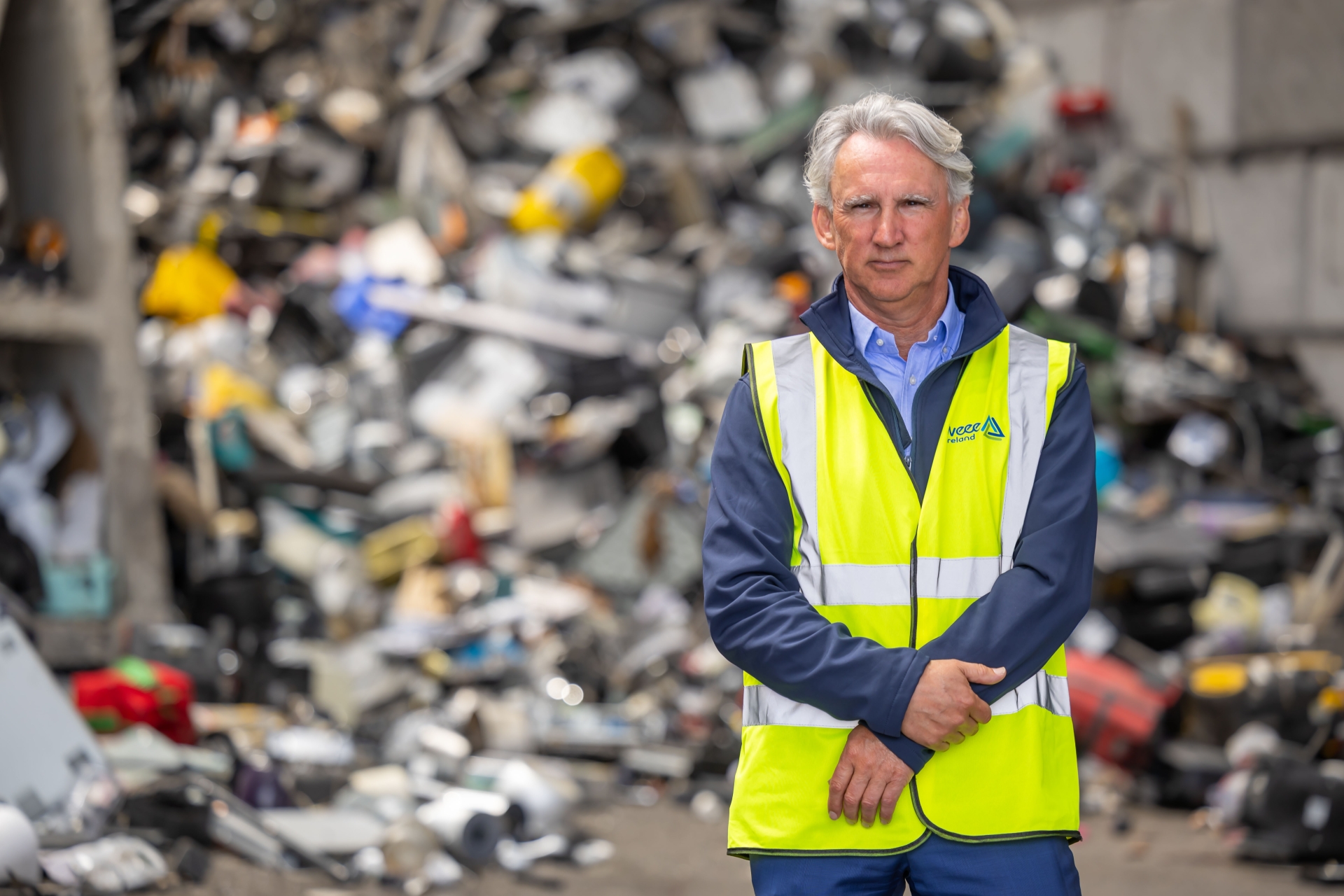
Waste Electrical and Electronic Equipment (WEEE) Ireland’s annual report for 2023 has been released, and has said that Laois's rate of recycling of electrical and electronic equipment falls below average.
An average of 6.34kg of e-waste (electronic or electrical waste) was recycled per person in Laois last year, falling below the 9.51kg national average.
The report covers the 20 counties in which it operates and shows that 582 tonnes of electrical waste were collected in Laois last year by WEEE Ireland, contributing to the record-breaking 41,730 tonnes of electronic and electrical waste recycled last year.
With Laois people’s e-waste recycling below the average, WEEE Ireland’s CEO warns we need to recycle more critical raw materials as Ireland’s population grows – and so too does our consumption of new appliances.
“Most householders in Laois have a hidden treasure trove of broken, unused or unwanted electrical equipment in their homes,” said Leo Donovan. “They alone hold the key to recycling them, giving them a new lease of life so we can recover the critical raw materials they contain.”
When compared to 2022, consumers across Ireland recycled the equivalent of 200 forty-foot containers more than the previous year.
However, Ireland recycled approximately 18.1 million electrical appliances in 2023 – exceeding all European norms.
The e-waste haul saved from landfill in 2023, up from the 40,767 tonnes collected in 2022, includes two million lighting items, a quarter of a million TVs and over half a million large household appliances, including fridge freezers.
A remarkable 750,000 used vapes were also collected after the national recycling scheme implemented its first dedicated takeback programme for waste e-cigarettes and vapes last year through WEEE Ireland Blue Battery Boxes.
Over 15 million small appliances such as coffee makers, calculators, kettles and keyboards, and the equivalent of 66 million used AA batteries were handed back to make their way into the circular economy.
“Over the last two decades, WEEE Ireland has developed a highly efficient, free national takeback system, enabling our country to outperform EU recovery targets,” said Mr Donovan.
“Our investment in first-class, indigenous recycling facilities ensures we fully maximise the quality and value of the resources – with over 80% of materials recovered for reuse.
“While this is a major achievement for our country, we can’t stand still, particularly when it comes to recycling small electrical products to ensure we have the materials needed for current and future product manufacturing.”

WEEE Ireland CEO, Leo Donovan warns of growing future challenges when it comes to our critical raw material needs despite Ireland recycling a record-breaking amount of e-waste last year, according to the organisation's annual report. Picture: Paul Moore.
The Critical Raw Materials Act came into effect in Ireland last month, and by 2030, 25% of critical and strategic materials such as lithium, copper and cobalt must be sourced from recycling systems within Europe.
Europe currently imports 80% of its rare earth elements, gallium and magnesium, from China.
“With finite resources, it is also vital that we support Ireland’s new National Waste Development Plan transitioning from the traditional ‘take-make-use-dispose’ model to one where electrical and electronic devices are being reused or repaired as much as possible to minimise waste generation,” said Mr Donovan.
The annual report also revealed that last year, 54% of e-waste was collected from retailer sites, 26% from local authority sites and 20% from WEEE Ireland’s network of collection points.
Consumers are encouraged to bring old and broken appliances for free recycling to their nearest local authority civic amenity centre or participating electrical retailers, with no purchase necessary.
Subscribe or register today to discover more from DonegalLive.ie
Buy the e-paper of the Donegal Democrat, Donegal People's Press, Donegal Post and Inish Times here for instant access to Donegal's premier news titles.
Keep up with the latest news from Donegal with our daily newsletter featuring the most important stories of the day delivered to your inbox every evening at 5pm.